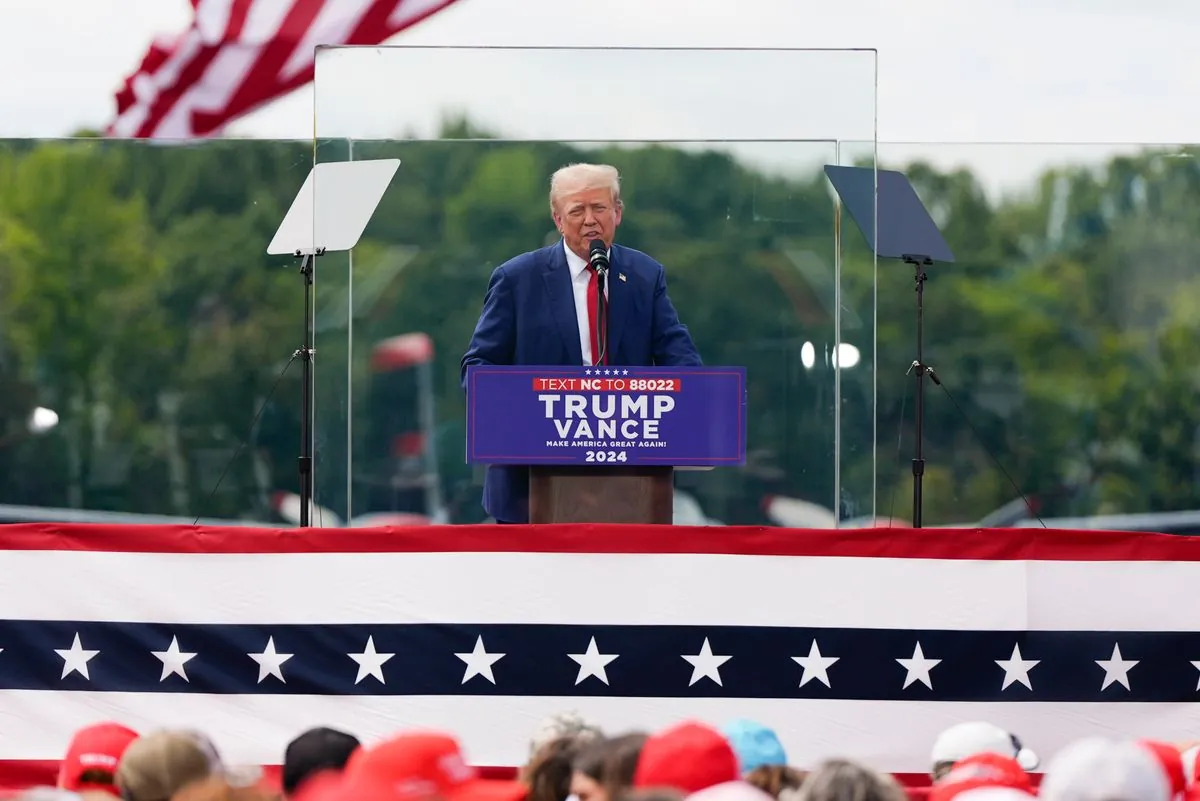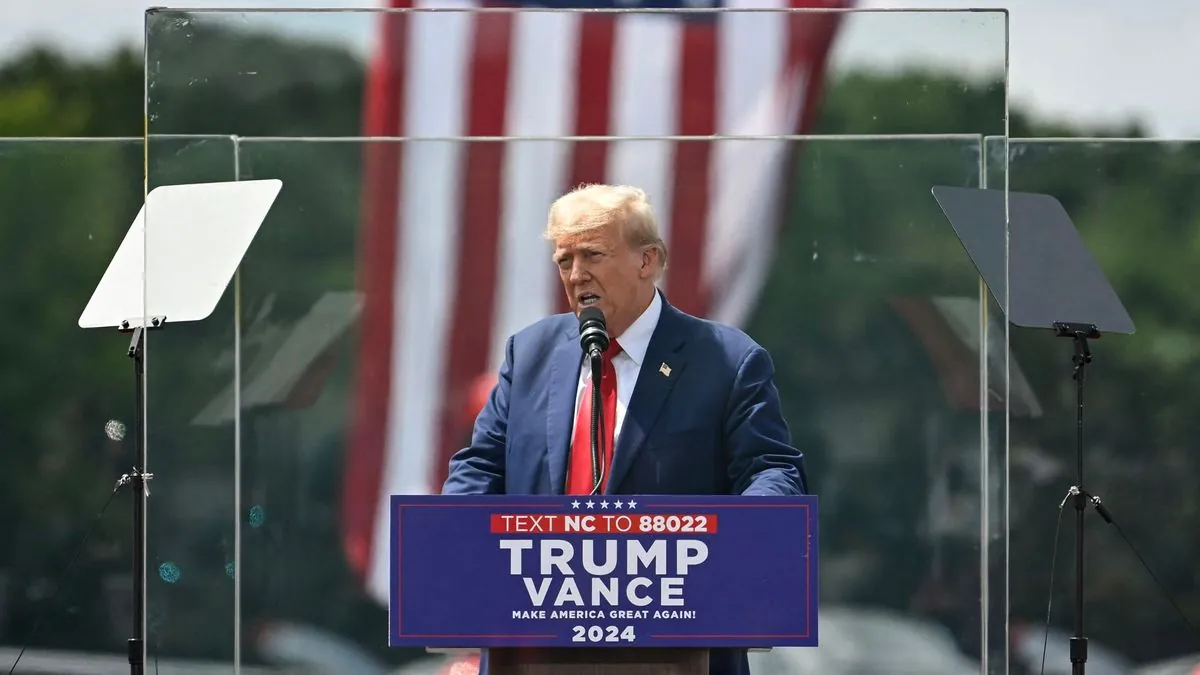Escalating Violence Mars 2024 US Presidential Race
Recent violent incidents and threats have heightened tensions in the 2024 US presidential campaign. Candidates face increased security measures as concerns grow about the normalization of political violence.

The 2024 US presidential race has been marred by a series of violent incidents and threats, raising concerns about the escalating tensions in an already heated political climate. Donald Trump and his Democratic opponents have faced unprecedented security challenges, forcing both campaigns to adapt their strategies and implement heightened safety measures.
On September 15, 2024, a shooting incident occurred at Trump's golf club, where a Secret Service agent fired upon an armed individual. This event came just two months after a previous assassination attempt at a campaign rally in Butler, Pennsylvania. These incidents have led to increased security measures, including the use of bulletproof glass at outdoor events for both Trump and his Democratic rivals.

The escalating violence has not been limited to direct attacks on candidates. Springfield, Ohio, has experienced a series of bomb threats targeting schools, city hall, and hospitals. These threats emerged after Trump and other politicians amplified false claims about Haitian immigrants in the area, highlighting the potential consequences of inflammatory rhetoric.
"I really believe that the rhetoric from the Democrats is making the bullets fly. And it's very dangerous."
Trump has accused his Democratic opponents of inciting violence through their rhetoric, particularly their characterization of him as a threat to democracy. However, Democrats counter that Trump's own inflammatory language and actions, including his role in the January 6, 2021, Capitol storming, pose a greater danger to the democratic process.
The current climate of political violence is not without historical precedent. The United States has experienced numerous assassination attempts on presidents and candidates throughout its history. In fact, over 30 assassination attempts have been made on presidents or presidential candidates, with four resulting in the deaths of sitting presidents.
The Secret Service, established in 1865, has played a crucial role in protecting political figures. The agency's responsibilities have evolved significantly since its inception, with Grover Cleveland becoming the first president to receive full-time protection in 1894.
As the campaign season progresses, concerns are growing about the potential normalization of political violence. Erik Nisbet, a Northwestern University professor, warns that the nation may be reaching "a new plateau" in public tolerance for threats and bloodshed.
The impact of this volatile environment extends beyond the candidates themselves. Haitian residents in Springfield have reported staying indoors due to fear of reprisal attacks, while community events have been canceled for security reasons. This situation underscores the real-world consequences of inflammatory political rhetoric and misinformation.
Historically, the United States has faced periods of intense political violence, such as the tumultuous year of 1968, which saw the assassinations of Robert F. Kennedy and Martin Luther King Jr. However, the current climate is unique in its pervasiveness and the role of modern technology in amplifying threats and misinformation.
As the nation approaches the final weeks of the campaign, there is a growing call for all parties to tone down their rhetoric and prioritize the safety of candidates and citizens alike. The challenge lies in maintaining a robust democratic discourse while preventing the further escalation of violence and threats that have come to characterize the 2024 presidential race.


































